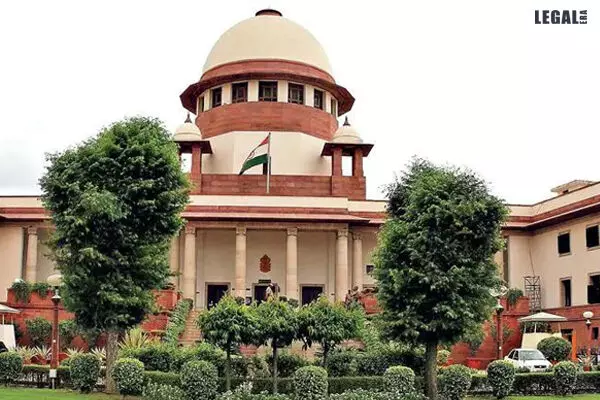- Home
- News
- Articles+
- Aerospace
- Agriculture
- Alternate Dispute Resolution
- Banking and Finance
- Bankruptcy
- Book Review
- Bribery & Corruption
- Commercial Litigation
- Competition Law
- Conference Reports
- Consumer Products
- Contract
- Corporate Governance
- Corporate Law
- Covid-19
- Cryptocurrency
- Cybersecurity
- Data Protection
- Defence
- Digital Economy
- E-commerce
- Employment Law
- Energy and Natural Resources
- Entertainment and Sports Law
- Environmental Law
- FDI
- Food and Beverage
- Health Care
- IBC Diaries
- Insurance Law
- Intellectual Property
- International Law
- Know the Law
- Labour Laws
- Litigation
- Litigation Funding
- Manufacturing
- Mergers & Acquisitions
- NFTs
- Privacy
- Private Equity
- Project Finance
- Real Estate
- Risk and Compliance
- Technology Media and Telecom
- Tributes
- Zoom In
- Take On Board
- In Focus
- Law & Policy and Regulation
- IP & Tech Era
- Viewpoint
- Arbitration & Mediation
- Tax
- Student Corner
- AI
- ESG
- Gaming
- Inclusion & Diversity
- Law Firms
- In-House
- Rankings
- E-Magazine
- Legal Era TV
- Events
- News
- Articles
- Aerospace
- Agriculture
- Alternate Dispute Resolution
- Banking and Finance
- Bankruptcy
- Book Review
- Bribery & Corruption
- Commercial Litigation
- Competition Law
- Conference Reports
- Consumer Products
- Contract
- Corporate Governance
- Corporate Law
- Covid-19
- Cryptocurrency
- Cybersecurity
- Data Protection
- Defence
- Digital Economy
- E-commerce
- Employment Law
- Energy and Natural Resources
- Entertainment and Sports Law
- Environmental Law
- FDI
- Food and Beverage
- Health Care
- IBC Diaries
- Insurance Law
- Intellectual Property
- International Law
- Know the Law
- Labour Laws
- Litigation
- Litigation Funding
- Manufacturing
- Mergers & Acquisitions
- NFTs
- Privacy
- Private Equity
- Project Finance
- Real Estate
- Risk and Compliance
- Technology Media and Telecom
- Tributes
- Zoom In
- Take On Board
- In Focus
- Law & Policy and Regulation
- IP & Tech Era
- Viewpoint
- Arbitration & Mediation
- Tax
- Student Corner
- AI
- ESG
- Gaming
- Inclusion & Diversity
- Law Firms
- In-House
- Rankings
- E-Magazine
- Legal Era TV
- Events
Supreme Court Upholds NCLAT Verdict: Nonpayment of Amounts Due to Bank is Default under Section 3(12) of IBC

Supreme Court Upholds NCLAT Verdict: Nonpayment of Amounts Due to Bank is Default under Section 3(12) of IBC
The Supreme Court by its two-Judge Bench comprising Justice Abhay S. Oka and Justice Rajesh Bindal has upheld the decision passed by the National Company Law Appellate Tribunal (NCLAT) and dismissed the appeal on the ground that the Appellant/Corporate Debtor committed a default within the meaning of Section 3(12) of the Insolvency and Bankruptcy Code, 2016 (IBC) due to non-payment of the amounts due to the Bank.
In the present case, the respondents i.e., the Canara Bank and others had filed an application under Section 7 of the IBC before the National Company Law Tribunal (NCLT), Hyderabad, Telangana against a Corporate Debtor.
The appellant- M. Suresh Kumar Reddy claimed to be a suspended Director of the Corporate Debtor and the NCLT admitted the application filed by the Bank.
The NCLT had declared a moratorium for the purposes referred to in Section 14 of the IBC and the appellant claiming to be an aggrieved person preferred an appeal against the said order before the National Company Law Appellate Tribunal (NCLAT). However, the NCLAT dismissed the appeal filed by the appellant.
The bench noted that in this case, the amount payable by the Corporate Debtor also included the amount repayable under fund-based credit facility of secured overdrafts. The facility granted to the Corporate Debtor was not confined to Bank Guarantees.
Moreover, the bench noted a demand notice under Section 13(2) of the Securitization and Reconstruction of Financial Assets and Enforcement of Security Interest Act, 2002 dated 29th August 2018 was issued by the first respondent. As the Corporate Debtor did not honor the said notice, the original application for recovery has been filed by the first respondent before the Debt Recovery Tribunal at Hyderabad. Moreover, the Corporate Debtor acknowledged the debt on 5th May 2019 to the extent of Rs. 63,36,61,897.26. Moreover, the Balance Sheet as of 31 March, 2019 of the Corporate Debtor reflects the said liability of the Corporate Debtor, observed the bench.
The Supreme Court after hearing the arguments of the counsel observed, “Even assuming that NCLT has the power to reject the application under Section 7 if there were good reasons to do so, in the facts of the case, the conduct of the appellant is such that no such good reason existed on the basis of which NCLT could have denied admission of the application under Section 7.”



